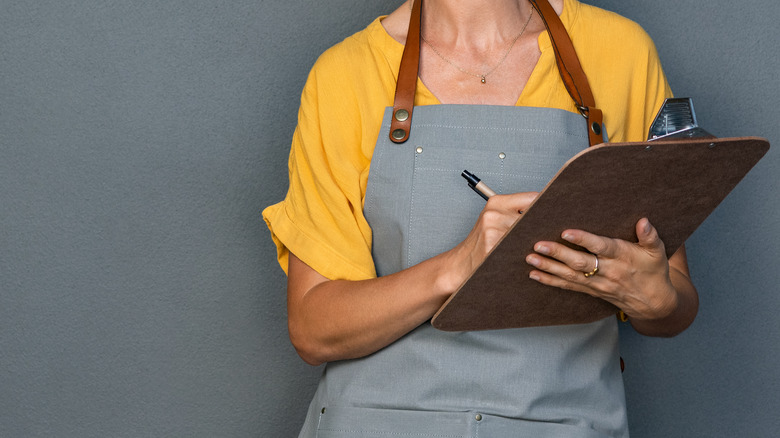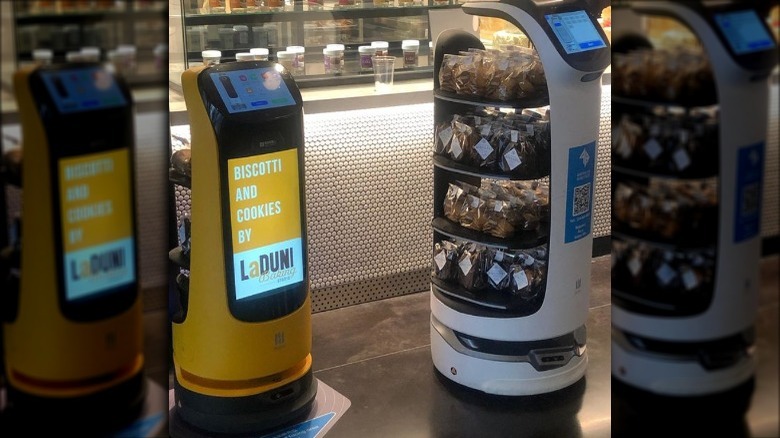The Futuristic Way One Dallas Restaurant Solved Its Worker Shortage
For the past several months, labor shortages have been plaguing the restaurant industry as a lack of workers has led many places, from smaller, independently,-owned restaurants to big name chains like Burger King and Chipotle, to shutter some locations or operate on limited hours. According to Eater, this dearth of restaurant workers is a result of several factors, most notably the high risk of contracting COVID-19 in such a public-facing job. "We do a ton of business out of a 400-square-foot kitchen. There's no mask in the world that's going to protect you from being next to someone for eight hours a day in that hot environment," Matt Glassman, the owner of the Greyhound Bar & Grill in Los Angeles, told the outlet.
Other industry-wide issues, such as low pay, long hours, and employment instability, have led many former restaurant workers to seek employment elsewhere. This has led to a great many problems for restaurant owners, who are struggling to keep their business afloat. However, one innovative Latin American restaurant in Dallas, Texas may have just found the solution to their employment woes: Robots.
La Duni now employs robotic staffers for just $15 a day
Following the closures of 2020, La Duni struggled to find staff to accommodate the business they were receiving. However, determined to remain open to customers, owner Espartaco Borga decided to hire a new set of workers from American Robotech, a robotics company based out of nearby Plano, Texas.
Coqueta, Alexcita, and Panchita, the new robotic help, can not only help greet and seat customers, run beverages, and deliver food, they can laugh and sing "Happy Birthday." The new robotic workers also cost just $15 a day and take only 90 minutes to set up, according to Delish. And while some may think that these robot workers might provide impersonal service, Borga reported that customers seem to love the new additions. "They don't even see them as what they are, which is a tablet on wheels. They see them as part of the service experience because these robots have a personality, they can interact. If you touch them, they giggle and they tell you things," he told CNN Business.

